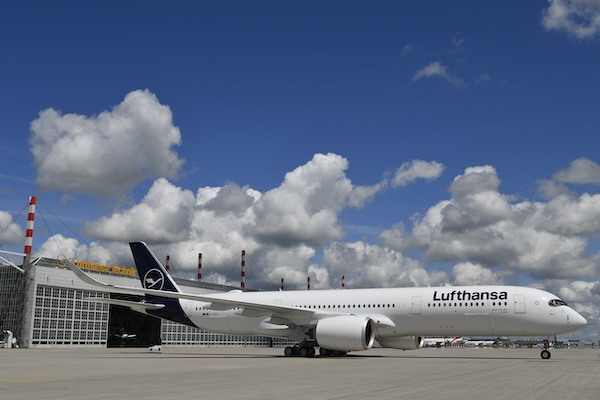Lufthansa Group is set to impose a new environmental surcharge on its flights starting January 2025.
This decision reflects a response to increasing regulatory pressures and sustainability costs, affecting ticket prices across its network.
Introduction of the Surcharge
The Lufthansa Group has announced the implementation of an environmental cost surcharge on its tickets, starting in 2025. This move aims to address the escalating expenses tied to regulatory environmental demands, with surcharges ranging from €1 to €72 based on the specific route and fare.
Scope and Application
The surcharge will apply to all flights operated by airlines under the Lufthansa Group, including Lufthansa, Austrian Airlines, Brussels Airlines, Eurowings, and Swiss. This will cover flights departing from the 27 EU member states, the UK, Norway, and Switzerland. In effect from January 1, 2025, the surcharge is levied on tickets issued from the previous announcement date.
Reasoning and Justification
According to the Lufthansa Group, the new charge is a strategic effort to partially offset the rising costs associated with regulatory environmental compliance. These costs stem from mandates such as the statutory blending quota for sustainable aviation fuel (SAF), adjustments related to the EU Emissions Trading System (EU ETS), and obligations under the Carbon Offsetting and Reduction Scheme for International Aviation (CORSIA).
The airline group asserts that while it is making significant investments in new technologies and collaborating on innovations to enhance the sustainability of air travel, the financial burden imposed by regulatory requirements is too substantial to bear alone.
Investment in Sustainability
Each year, the Lufthansa Group invests billions in cutting-edge technologies aimed at making air travel more sustainable. The company is actively involved in global climate and weather research initiatives, collaborating with partners to develop and scale innovations beyond the airline group itself.
The environmental surcharge is seen as part of a broader strategy to cover anticipated regulatory costs, thus ensuring the company can sustain its commitment to advancing sustainable aviation practices without compromising its financial stability.
Regulatory Influences
The introduction of this surcharge is heavily influenced by changes in EU environmental regulations, particularly the enhanced requirements for sustainable aviation fuels and emissions trading. By 2025, airlines are expected to integrate a minimum of 2% SAF in their fuel mix, necessitating infrastructure and supply chain overhauls.
Additionally, revisions to the EU ETS and the implementation of CORSIA are expected to impose further financial challenges on carriers, necessitating strategic responses such as this surcharge.
Such regulatory adjustments reflect a growing international commitment to reducing aviation’s environmental footprint, aligning with broader goals of achieving net-zero emissions in the sector.
Global Climate Research Contributions
The Lufthansa Group actively supports international efforts in climate research, contributing valuable data and resources. This engagement not only aids scientific understanding but also informs the company’s strategies in mitigating the environmental impact of aviation.
By integrating real-time climate data into operational decisions, the group aims to enhance the efficiency and sustainability of its flights, thereby reducing its overall carbon footprint.
Stakeholder Reactions
Stakeholders have expressed mixed responses to the surcharge announcement. While some industry experts acknowledge the necessity of such measures to align with environmental goals, there is concern about the potential impact on ticket prices and consumer demand.
Critics argue that additional charges could challenge the affordability and accessibility of air travel, potentially reducing passenger numbers at a time when the industry is recovering from the impacts of the global pandemic.
Supporters, however, contend that prioritising environmental responsibility is crucial for the sector’s long-term viability, suggesting that travellers may be willing to pay a premium for sustainable options.
Conclusion of the Surcharge Implementation
The environmental surcharge introduced by the Lufthansa Group represents a pivotal development in the aviation industry’s response to stringent regulatory demands. This initiative underscores a commitment to sustainable aviation amidst rising compliance costs.
As airlines navigate these evolving regulatory landscapes, the focus remains on balancing financial sustainability with environmental responsibility, ensuring the industry contributes positively to global climate objectives.
The environmental surcharge by Lufthansa underscores the airline’s strategy to balance costs and sustainability.
Navigating new regulations, the Lufthansa Group aims to maintain its environmental commitments while managing financial impacts.

